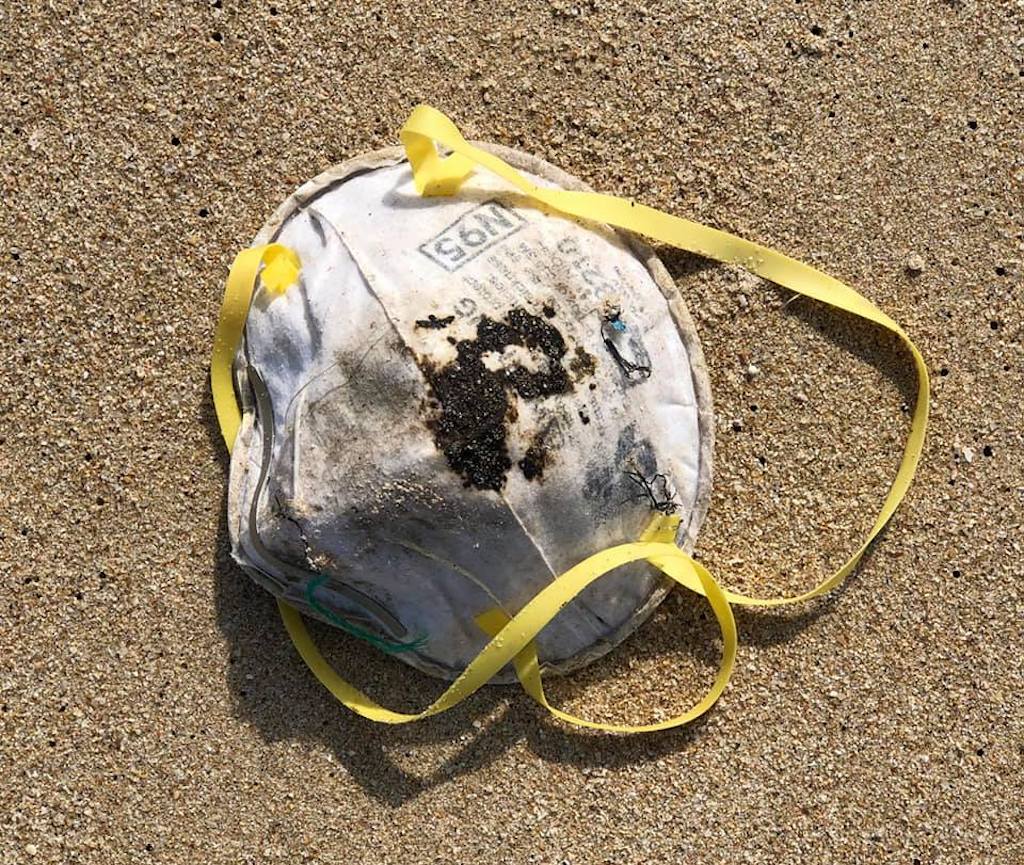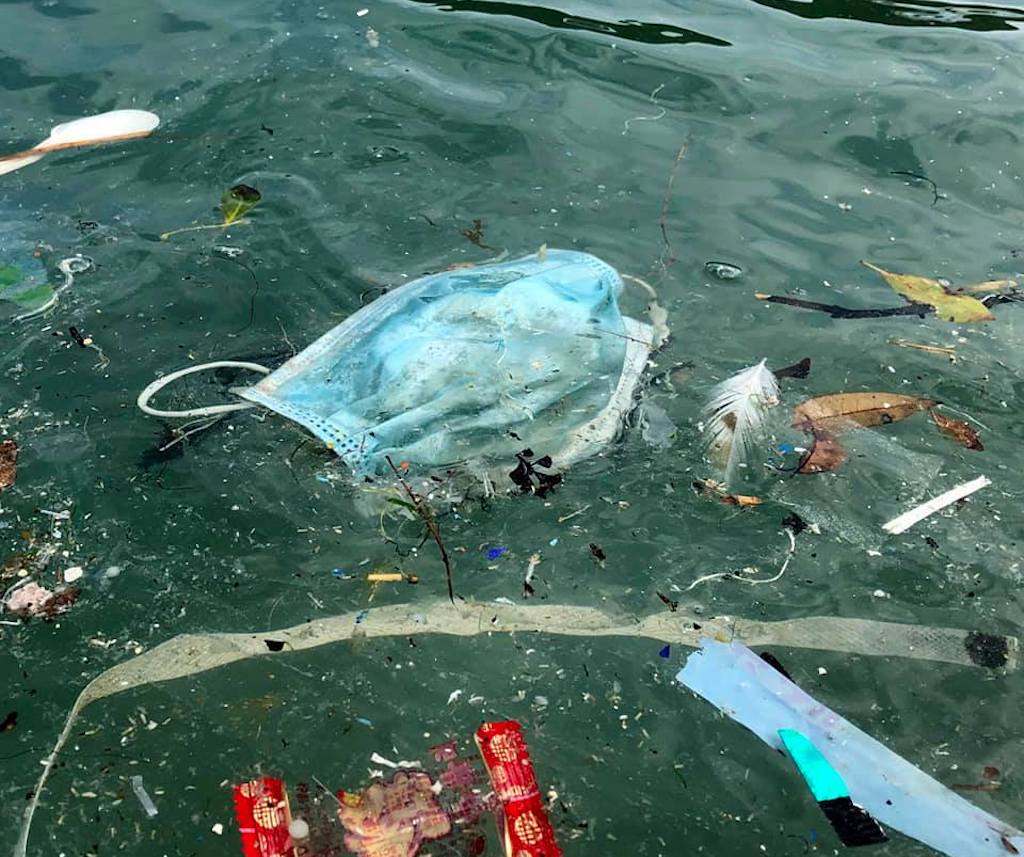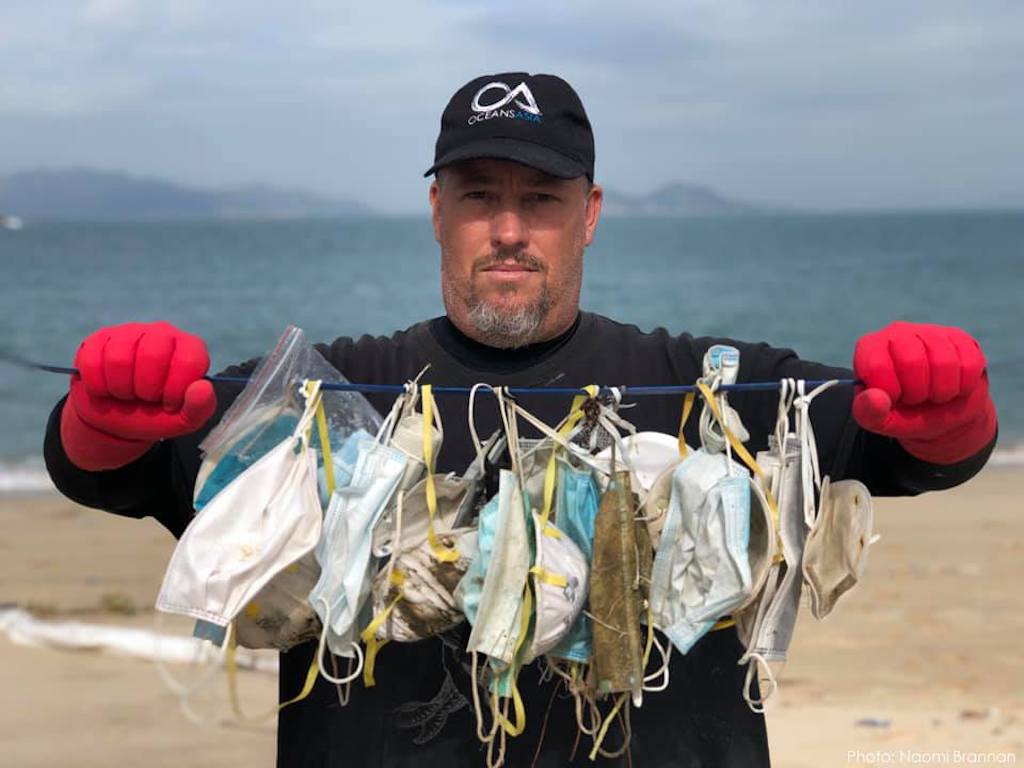3 Mins Read
As the current coronavirus epidemic lingers, many Hong Kong citizens and residents are taking precautions to protect themselves by wearing a surgical face mask in public. However, environmental groups in Hong Kong are now warning about the devastation left behind by surgical masks carelessly littered on local beaches and hiking trails.
The current outbreak of Covid-19 has prompted citizens in Hong Kong to take precautions to safeguard their health, most prominently by wearing surgical face masks in public areas. As of press time, the novel coronavirus has already infected over 90,000 people across 76 countries and the death toll stands at 3,087. Whilst medical experts across the board do recommend wearing surgical face masks, especially in crowded spaces, it has emerged that careless disposal of face masks has left behind a trail of waste and pollution along our local beaches and hiking trails.
Hong Kong-based environmental NGO OceansAsia are currently 5 months into a year-long study of marine debris and microplastics on their research site on the Soko Islands, located southwest of Lantau. Due to its remote location, the cluster of islands attracts few visitors and are not regularly cleaned by the government, which gives the research team insight into the composition and source of the trash buildup over time.

But now, during their most recent visit, which marks the first since the coronavirus outbreak, the group found around 70 masks on the 100-metre stretch of beach at the research site, demonstrating how quickly waste has been washed up on local shores.
“The population was really introduced heavily into using surgical masks about six weeks ago. And it has taken six weeks and now we are seeing the effect,” Gary Stokes, founder and director of OceansAsia.
Once face masks are left as marine debris polluting our shores, they can be mistaken as food by marine life inhabiting our local seas, including turtles, dolphins and finless porpoises. Once ingested by marine animals, they can block their digestive tracts and ultimately kill them.

Another local environmental group, the Conservancy Association (CAHK), has voiced similar concerns about the waste caused by improperly disposed surgical masks. “If you leave rubbish in the countryside, that [affects] the habitat of wildlife…Please prepare well so that you bring back all your rubbish,” said Ken So, the CEO of CAHK.
The evidence of the astonishing amount of waste left to pollute our oceans and environment has renewed calls for education about the need to properly and responsibly dispose of face masks. “We have a serious waste management system, both in Hong Kong and China,” said OceansAsia in a statement.
In addition to environmental damage, the irresponsible and improper littering of face masks can pose health risks as well. Although medical experts in Hong Kong do agree that single-use surgical masks are an effective measure to prevent the spread of infections transmitted by respiratory droplets, such as Covid-19, they have stressed that face masks must be disposed of properly after use. According to the guidelines provided by the Centre of Health Protection (CHP), soiled tissues and used face masks must be thrown away in a lidded bin to ensure that germs are not left to spread.
Read our earlier coverage of Covid-19 and tips on prevention here.
All images courtesy of OceansAsia / Naomi Brannan.




